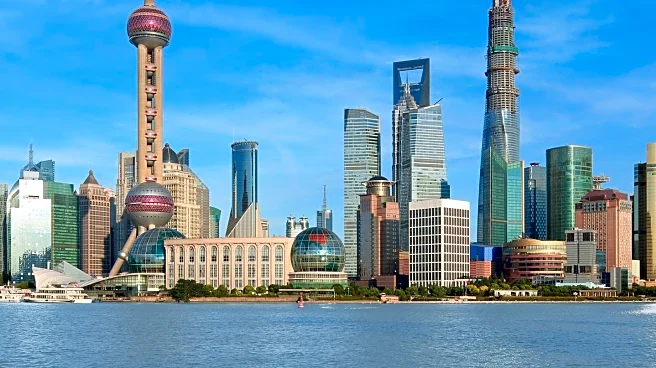What's Happening?
China's private museum sector is experiencing significant challenges due to a slowing economy, real estate turmoil, and lack of systemic support. Many ambitious museums are closing, downsizing, or struggling to survive. The sector, initially fueled by real estate ventures and wealthy patrons, is vulnerable as China's real estate market unravels. Institutions like Qingdao's The Artists' Garden Art Museum and Beijing's UCCA Centre for Contemporary Art are facing financial strain, revealing a deeper structural crisis. Without sustainable models, these museums risk becoming short-lived monuments to a vanished economic boom.
Why It's Important?
The financial difficulties faced by China's private museums highlight the fragility of cultural institutions reliant on real estate and individual patronage. Unlike Western counterparts benefiting from tax breaks and diversified funding, Chinese museums lack robust support systems. The closures and financial strain underscore the need for sustainable models to ensure the longevity of cultural spaces. The situation reflects broader economic challenges in China, impacting cultural investments and the viability of private museums as cultural anchors.
What's Next?
The future of China's private museums may depend on developing more sustainable funding models and governance structures. Institutions like UCCA are exploring diversified income streams, but systemic incentives and stable support remain crucial. The sector's ability to adapt to economic pressures will determine its resilience and continued contribution to China's cultural landscape. The potential for new financial strategies, such as community-based funding models, could offer a path forward for struggling museums.
Beyond the Headlines
The challenges faced by China's private museums reveal deeper issues in the country's cultural ecosystem, including the reliance on real estate and the absence of supportive policies. The situation raises questions about the role of cultural institutions in urban development and the need for policy frameworks that support long-term cultural investments. The financial strain on museums also highlights the broader impact of economic slowdowns on cultural sectors, emphasizing the importance of sustainable practices in preserving cultural heritage.










